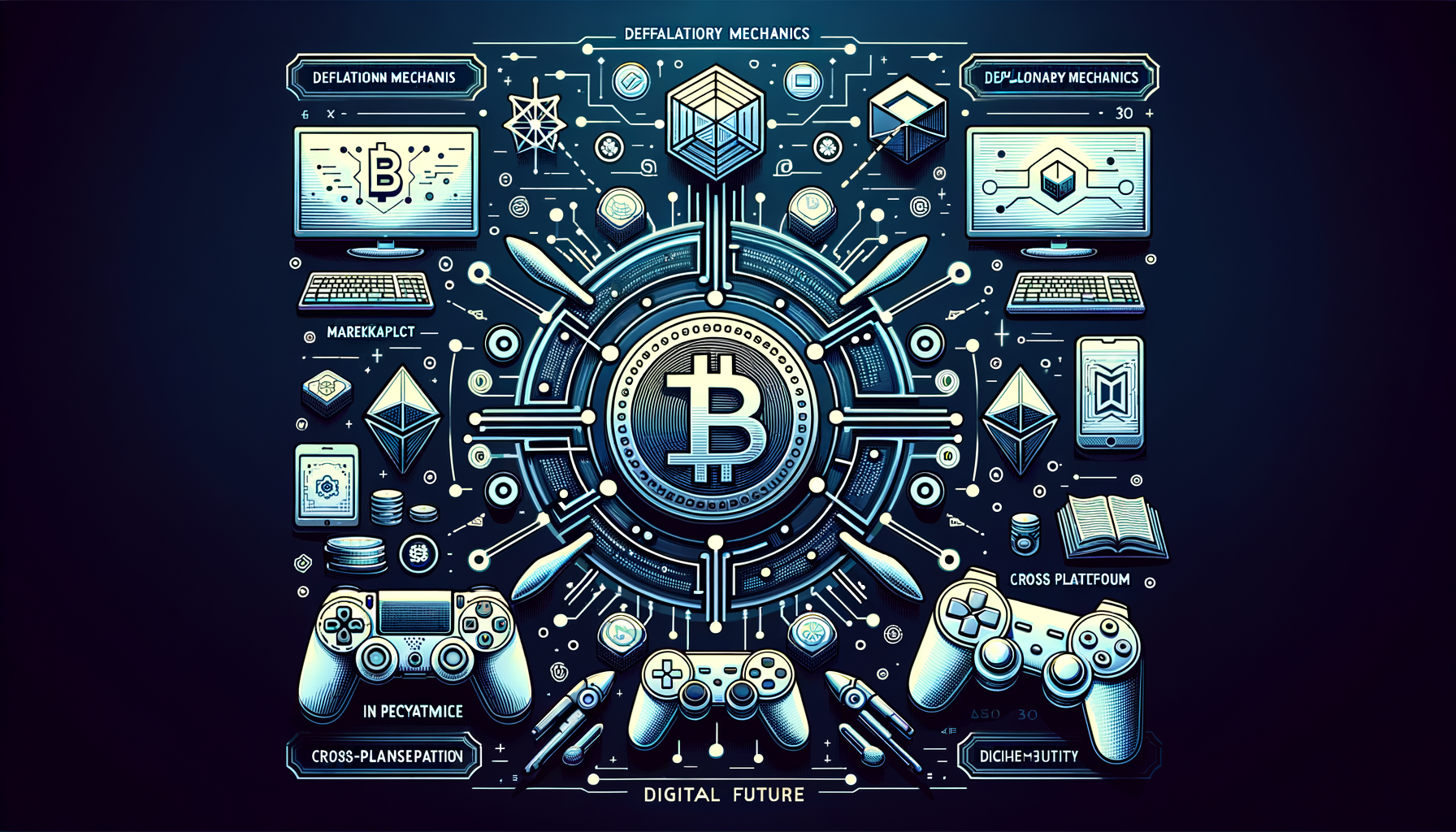In-Game Tokens: Powering Marketplaces and Progression
In the ever-expanding world of online gaming, in-game currencies and token-powered marketplaces have transformed how players interact, trade, and progress. No longer just a gimmick or a side feature, in-game tokens have evolved into powerful engines—driving player engagement, economic systems, and even cross-platform experiences. Whether you're grinding for gold in an MMORPG or flipping rare skins in a shooter marketplace, understanding how in-game currencies function will help you see gaming in a whole new light. Let’s dig deep into the mechanics, advantages, and future opportunities tied to token-based gaming economies—and why smart users and developers alike are attaching increasing value to digital assets like LoopCoin.What Are In-Game Tokens?
In-game tokens are virtual currencies used within a gaming ecosystem. These tokens can be earned, bought, or traded, serving as the lifeblood of internal economies. Unlike traditional game currencies—often locked to a single title—blockchain-based or utility-driven tokens can have broader usage, potentially spanning entire ecosystems or integrating with decentralized applications (dApps). Popular use cases include:- Purchasing skins, gear, or in-game assets
- Crafting or upgrading characters/items
- Marketplace trading between players
- Gating premium features or access rights
Marketplace Models: Open, Closed, and Hybrid Ecosystems
There are multiple in-game economy types that define how tokens are used:1. Closed Economy
In these models, tokens are strictly confined to an individual game. Players can’t trade them externally. While this model is easier to regulate, it limits player freedom and long-term engagement.2. Open Economy
Here, tokens can be exchanged on public marketplaces or swapped for fiat or other crypto currencies. This structure mimics real economies and offers real-world incentive layers—common in games like The Sandbox and Decentraland.3. Hybrid Economy
Games like Illuvium adopt hybrid setups—allowing limited trade while also restricting some in-game-only functions. This balances economic realism with gameplay control. The choice of marketplace model impacts everything—from player behavior and trading volume to inflation control and token velocity.The Role of Deflationary Tokenomics in Gaming
In volatile digital economies, inflation-control mechanisms are critical. Otherwise, in-game wealth becomes devalued over time. Deflationary tokenomics, such as those employed by LoopCoin, are designed to combat inflation and promote long-term value:Here's how LoopCoin's “Loop” applies deflationary principles:
- 0.05% fee on every transaction → Treasury revenue
- Treasury revenue → LoopCoin buybacks
- Buybacks → Weekly token burning
- Burning → Decreased supply and increased scarcity
Why Token Scarcity Matters in Games
In traditional gaming, inflating item drops and over-generous currency systems can wreck the in-game economy. The result? Items become worthless, and players feel unrewarded. By introducing scarce, deflationary tokens, developers can:- Maintain long-term balance and challenge
- Retain player interest via scarcity mechanics (e.g., limited skins or collectibles)
- Create meaningful progression and achievements
Real-World Utility and Cross-Game Economies
The future of in-game tokens may lie in their ability to function across multiple platforms or use cases, delivering real-world utility outside a single gaming environment. LoopCoin is exploring this potential with an ecosystem-first approach:- Exclusive currency for gated media and SaaS platforms
- Required to access advanced crypto alerts on memecoinAlerts
- Planned integration into broader community tools and decentralized applications
Should You Pay Attention to Token-Driven Economies as a Gamer or Developer?
Absolutely. Whether you’re a developer exploring revenue models or a gamer optimizing your progression, in-game tokens are no longer optional—they're integral. For Developers: A well-designed token economy can dramatically improve monetization, player retention, and user-generated content ecosystems. For Gamers: Strategic use of in-game tokens can boost your strengths, grant early access to elite tools or features, and even unlock new earning opportunities across platforms. Hooking into emerging platforms that implement advanced tokenomics—like LoopCoin—may offer fascinating new ways for both gamers and developers to collaborate on a token-powered future.Explore LoopCoin today and discover how deflationary gaming and platform integration can benefit your digital experience.
Want to learn more? Join the community on Telegram, check out LoopCoin’s live stats on DexScreener, or follow LoopCoin on X (Twitter).Conclusion
The next generation of games won’t just have players—they’ll have economies. Understanding the principles behind in-game tokens, deflationary design, and cross-platform utility is essential for those who want to stay ahead. Whether you’re building or playing, look for tokens that prioritize ecosystem growth, scarcity-based mechanics, and long-term programmatic design—just like LoopCoin does with its transparent burning and buyback model. The future’s not just about fun—it’s about function. And tokens are leading the charge.This content is provided for general informational and educational purposes only. It does not constitute financial, investment, legal, or tax advice, and should not be interpreted as a recommendation to buy, sell, or hold any digital asset, including LoopCoin ($LPC).
LoopCoin is a utility token intended to be used within its ecosystem to access services and platforms. It is not a security, and we make no claims, promises, or guarantees regarding its future value, performance, or appreciation.
All token-related mechanisms such as burning, treasury allocations, or buybacks are programmatic features of the LoopCoin ecosystem, designed to enhance utility—not promises of profit.
You are solely responsible for your interactions with digital assets. Please consult with a qualified professional before making any decisions involving cryptocurrency. Use of this website and its content is subject to our Terms of Use and Privacy Policy.


